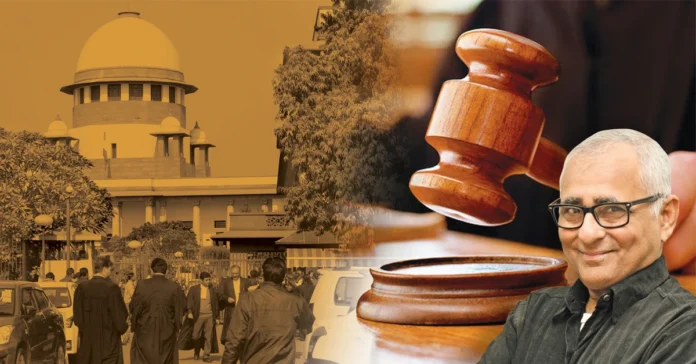By Inderjit Badhwar
The Supreme Court’s recent ruling on the limits of immunity under Section 197 of the Code of Criminal Procedure (CrPC) could not have come at a more critical time for Indian democracy. By firmly stating that public servants cannot hide behind immunity provisions for acts done with malice or dishonesty, the Court has struck a much-needed blow for the integrity of India’s judicial and administrative systems.
This verdict underscores the principle that the Rule of Law is paramount, even for those entrusted with its enforcement. At a time when the Indian judiciary faces growing criticism for perceived lapses in curbing Executive overreach, this judgment is a vital reminder of the Judiciary’s role as a check on power and a guardian of fundamental rights.
For decades, Section 197 CrPC has served a dual purpose: protecting honest public servants from frivolous litigation while ensuring that official duties are discharged without fear. However, this provision has been repeatedly abused by corrupt officials to shield acts of malice, dishonesty, and outright illegality. The Supreme Court’s ruling reaffirms that the law is not a cloak to protect wrongdoers, but a shield for the virtuous.
This judgment comes at a time when instances of Executive excess—ranging from the weaponization of laws to targeting dissenters to the misuse of state machinery for political ends—have eroded public trust. By limiting the scope of Section 197 CrPC to acts genuinely connected to official duties, the Court has reaffirmed that accountability is inseparable from authority.
India’s judiciary has often been accused of failing to rise to the occasion when Executive actions threatened constitutional safeguards. Recent years have seen a troubling silence on critical issues such as the dilution of democratic norms, arbitrary detentions, and violations of fundamental rights. This silence has allowed the Executive to expand its reach, undermining the system of checks and balances.
The Supreme Court’s ruling, however, stands out as a refreshing assertion of judicial independence. By refusing to grant immunity to police officers accused of fabricating evidence, the Court has sent a clear signal: the misuse of State power will not be tolerated. This verdict strengthens the Judiciary’s role as a bulwark against Executive overreach and restores faith in its commitment to uphold constitutional values.
At its heart, this ruling is about restoring the guardrails that prevent the concentration of unchecked power. A robust democracy relies on institutions that are willing to challenge each other when necessary. The Judiciary’s willingness to hold public servants accountable for misconduct is essential to maintaining this balance.
The significance of this judgment also lies in its message to honest public servants. It reassures them that the law will protect their good-faith actions while ensuring that those who misuse their authority for personal or political gain will face consequences. This dual message is vital for fostering a culture of integrity and accountability in public administration.
The Court’s emphasis on the connection between official duties and immunity under Section 197 CrPC also reinforces citizens’ fundamental rights, particularly the Right to Life and Liberty guaranteed under Article 21 of the Constitution. When state actors misuse their authority, it is often the powerless who suffer. By limiting the scope of immunity, the judiciary is ensuring that victims of executive excess have recourse to justice.
The Supreme Court’s judgment on Section 197 CrPC is a reminder that public servants are not above the law. It is a step towards restoring public confidence in the judiciary and the democratic system. But this is only the beginning. For this ruling to have a lasting impact, courts across the country must adopt a similar approach, ensuring that the misuse of power is met with accountability at every level.
The Judiciary, as the ultimate guardian of the Constitution, must continue to push back against Executive excesses that threaten the Rule of Law. In doing so, it can reclaim its role as the cornerstone of a democracy where no one—neither citizen nor public servant—is above accountability. This judgment is not just about Section 197; it is about reaffirming the very foundation of justice and fairness in India.


